
When the Republicans regained control of the House of Representatives in the 2022 midterms, the flow of American aid to Ukraine ground to a halt. While a substantial number of GOP representatives back Ukraine, a larger contingent is more skeptical. This article examines the most anti-Ukraine Republican members of the House.
Why This Matters
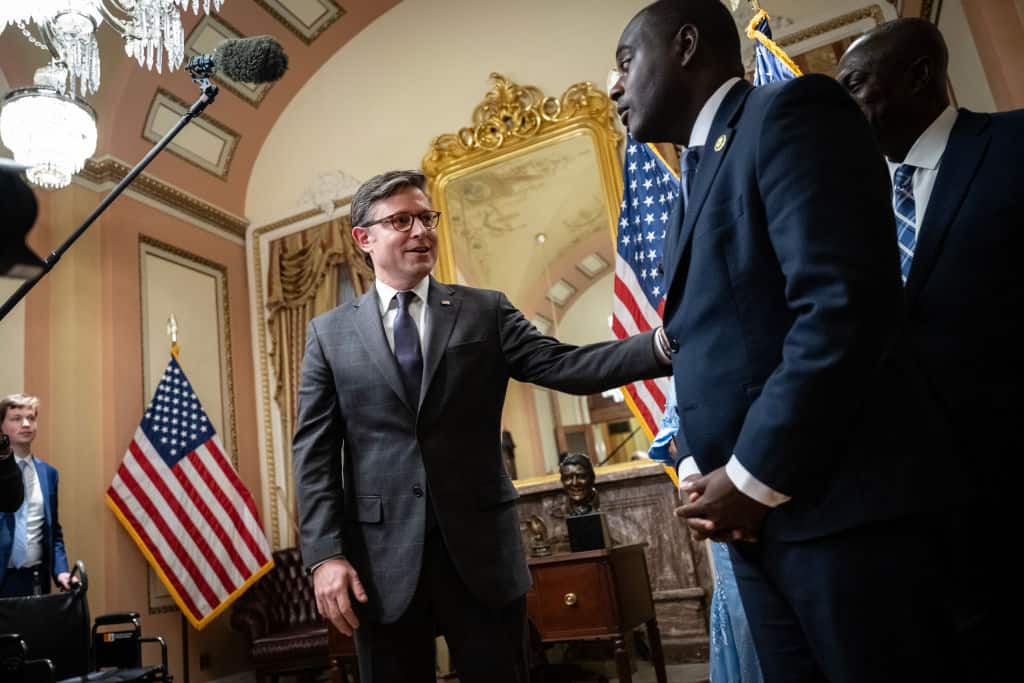
The 2024 presidential election may greatly impact the outcome of the war in Ukraine but the down ballots are just as vital. The makeup of the legislature will determine what actually gets through Congress.
Voting Records
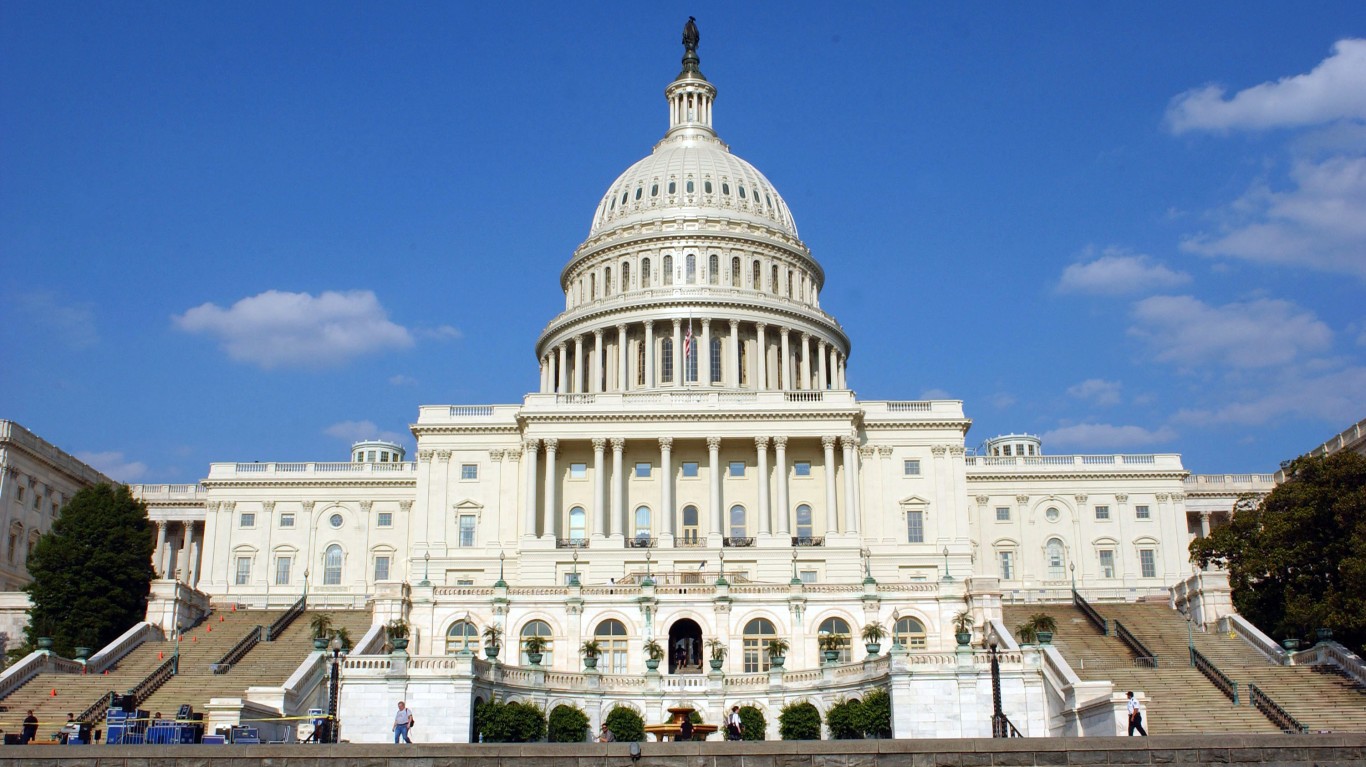
91 GOP representatives hold an ‘F’ rating from Republicans for Ukraine. To be included in this collection, representatives must have voted against every Ukranian aid bill and spoken out against further American support for Ukraine.
Tom Tiffany
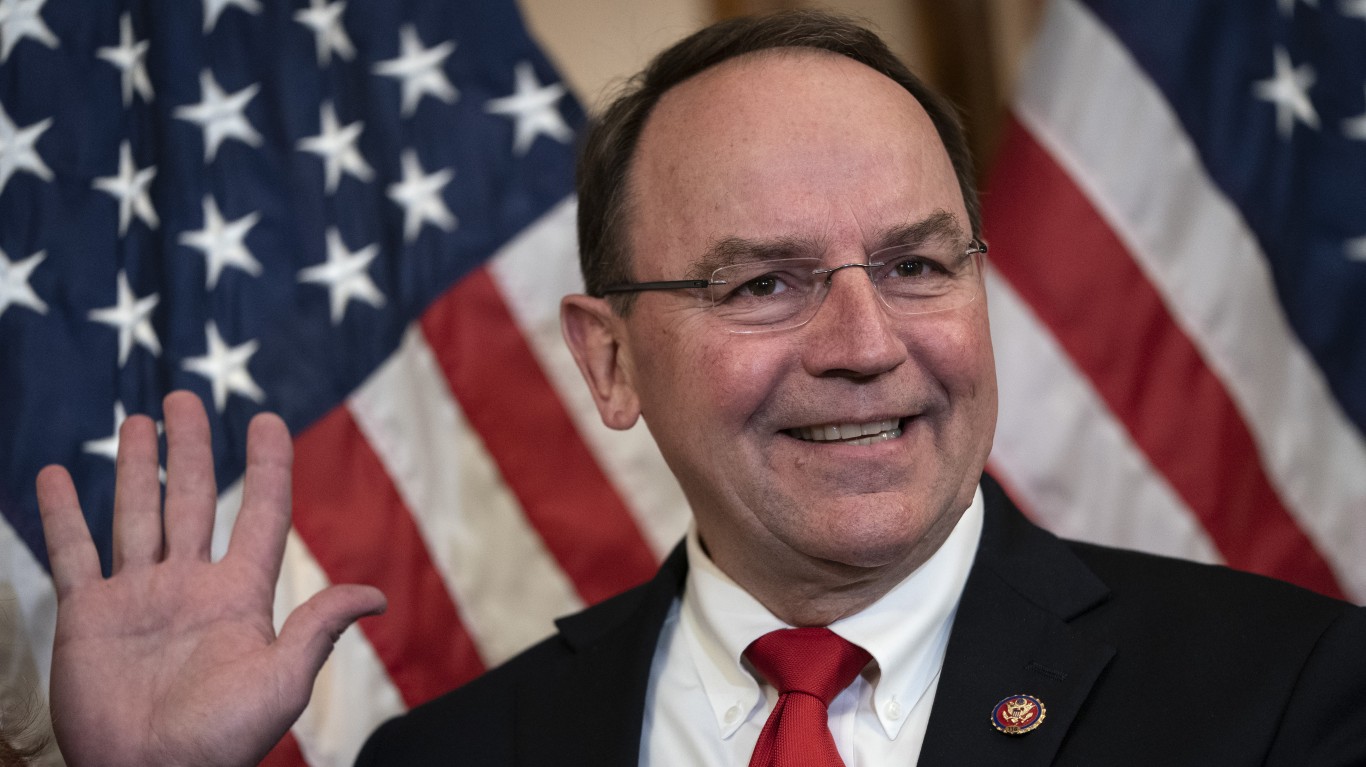
Wisconsin 7th Congressional District
Assumed office: 2020
Bipartisan ranking: 379th
Tiffany won a special election in 2020 to replace the outgoing representative Sean Duffy. A member of the far-right Freedom Caucus, Tiffany has consistently voted against aid to Ukraine. He also voted against the resolution to condemn Russia’s abduction of Ukrainian children in the war. In 2023, he explained his vote for an amendment to the National Defense Authorization Act that would have cut off all aid to Ukraine:
America cannot continue to finance an opened-ended European conflict that is depleting our munitions stockpiles and our treasury here at home while encouraging Communist Chinese aggression around the world. Europe should take the lead in encouraging a peaceful resolution.
Scott Perry
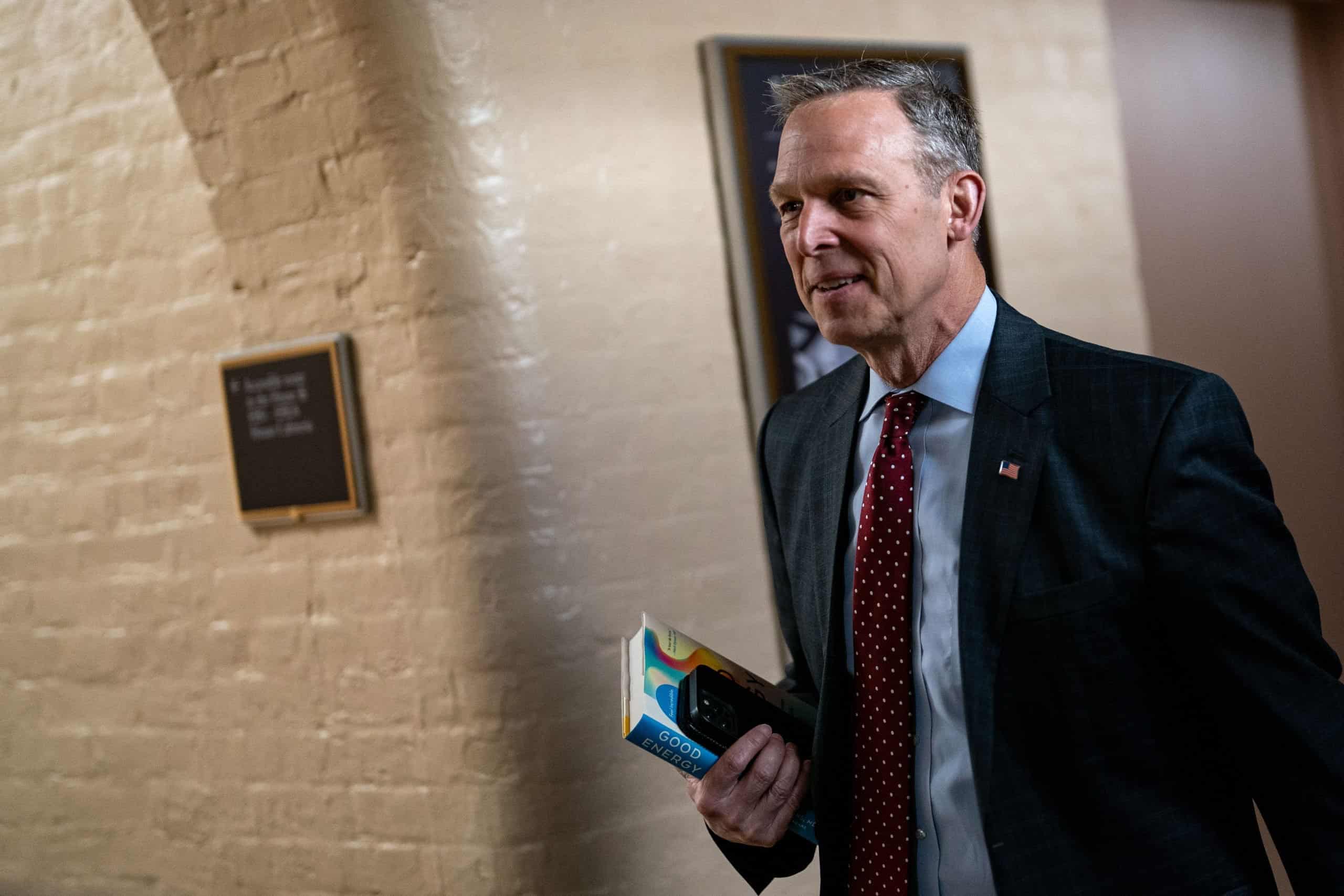
Pennsylvania 10th Congressional District
Assumed office:2013
Bipartisan ranking: 400th
The chair of the House Freedom Caucus from 2022-24, Scott Perry was first elected in 2013 to represent Pennsylvania’s 4th district before moving to the 10th in 2019. Though he condemned Russia’s invasion, he spoke against providing aid. Like other members of his caucus, he insisted the southern border and inflation were of greater concern:
That having been said, our borders are wide open. Our people cannot afford their electric bills, their gas bills and their food bills and before we send blank checks to some other country, we need to take care of our own people
Ralph Norman
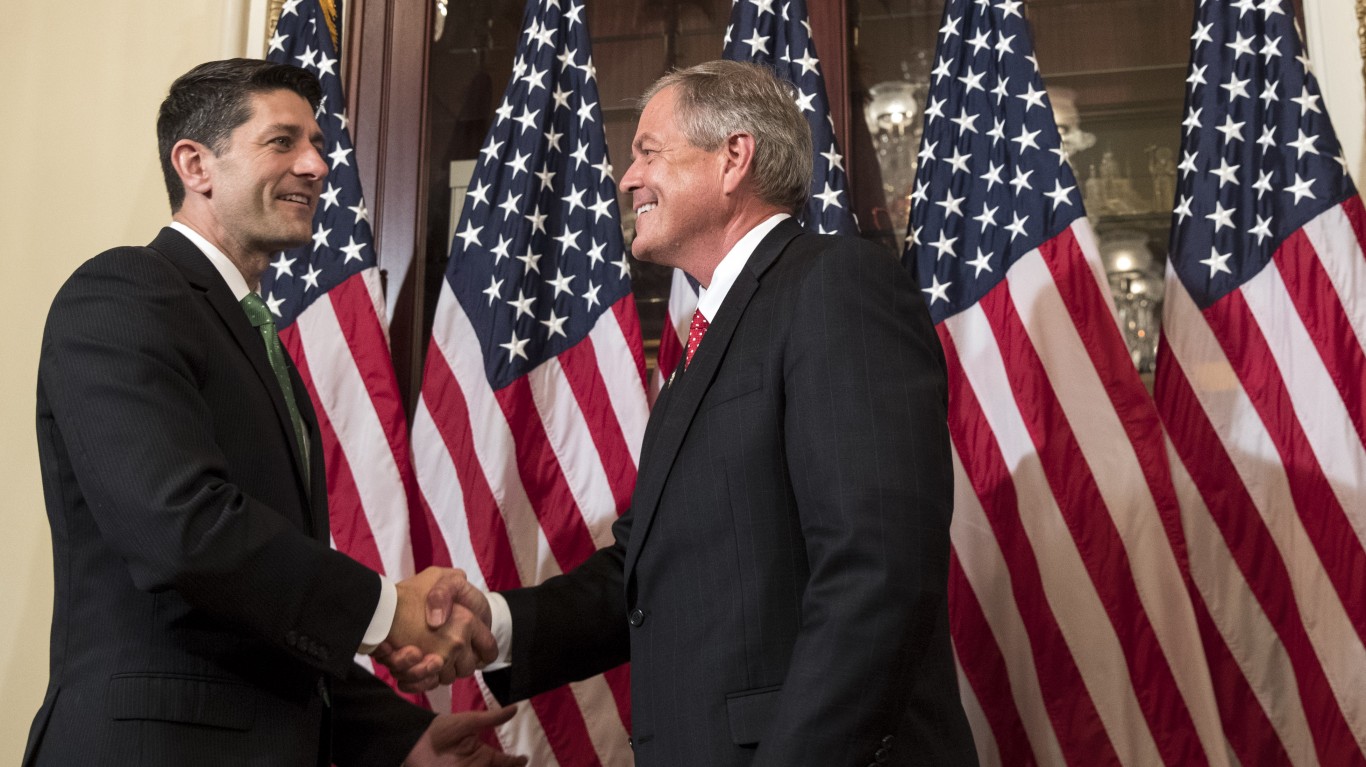
South Carolina 5th Congressional District
Assumed office: 2017
Bipartisan ranking: 385th
Unlike his staunchly pro-Ukraine Republican colleague in the 2nd district, South Carolina’s Ralph Norman is a leading voice against Kyiv. Another member of the Freedom Caucus, Norman raised eyebrows when he backed Nikki Haley over Donald Trump in the 2024 primary. He was the only member of the caucus to do so. His position on Ukraine is more in keeping with fellow Freedom Caucus members:
Look at what Russia is doing with shooting down our drone. Look at what China is doing with the balloon that surveilled. Where, when are we going to start putting America’s safety? When are we going to start securing our borders, putting money for that?
Thomas Massie
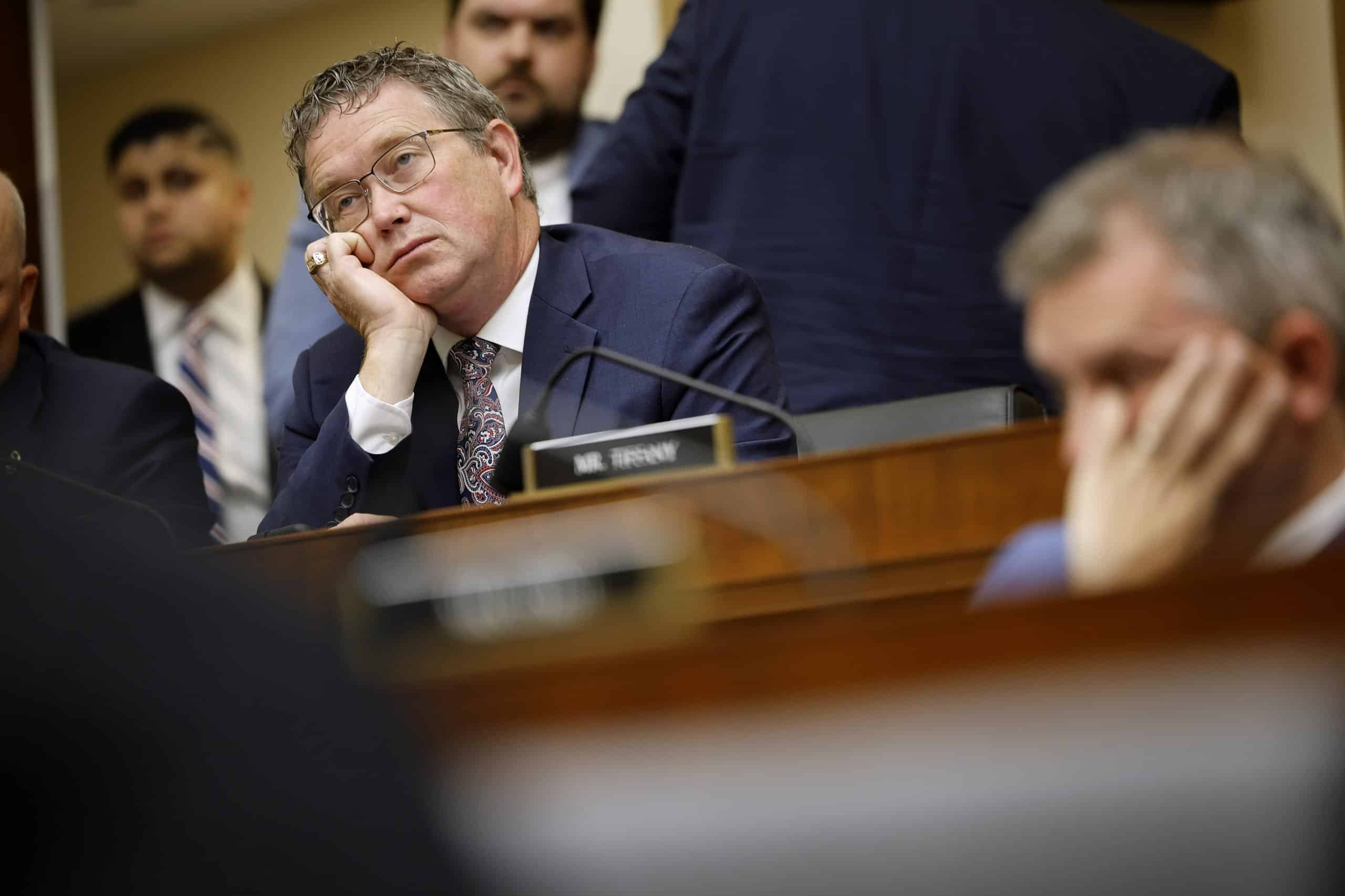
Kentucky 4th Congressional District
Assumed office: 2012
Bipartisan ranking: 353rd
Thomas Massie was first elected to the House in 2012. A Libertarian, he has consistently spoken and voted against American involvement in foreign disputes. He was one of the nine GOP members who voted against the resolution to condemn child abductions in Ukraine. After missing a speech by Ukrainian President Volodymyr Zelenskyy in December 2022, he said of aid to Ukraine:
It is not charity. Charity would be given freely. The American taxpayers have been conscripted into making welfare payments to this foreign government
Marjorie Taylor Greene

Georgia 14th Congressional District
Assumed office: 2021
Bipartisan ranking: 425th
One of the most controversial and least bipartisan members of Congress, Marjorie Taylor Greene was expelled from the Freedom Caucus in July 2023 after a run-in with fellow firebrand Lauren Boebert. Her penchant for outlandish public statements includes strong opposition to American support for Ukraine. She voted against the resolution to condemn Russia’s abduction of Ukranian children. While insisting Kyiv is “not the 51st state” she said in an April 2023 interview:
The United States needs to be pushing for peace in Ukraine, not funding a proxy war with Russia.
Matt Gaetz

Florida 1st Congressional District
Assumed office: 2017
Bipartisan ranking: 410th
A lightning rod for controversy, Matt Gaetz gained notoriety during his bitter feud with former Speaker of the House Kevin McCarthy. A year into the conflict, Gaetz tabled a “Ukraine fatigue” resolution to cut off aid to Ukraine:
America is in a state of managed decline, and it will exacerbate if we continue to hemorrhage taxpayer dollars toward a foreign war. We must suspend all foreign aid for the War in Ukraine and demand that all combatants in this conflict reach a peace agreement immediately.
Warren Davidson
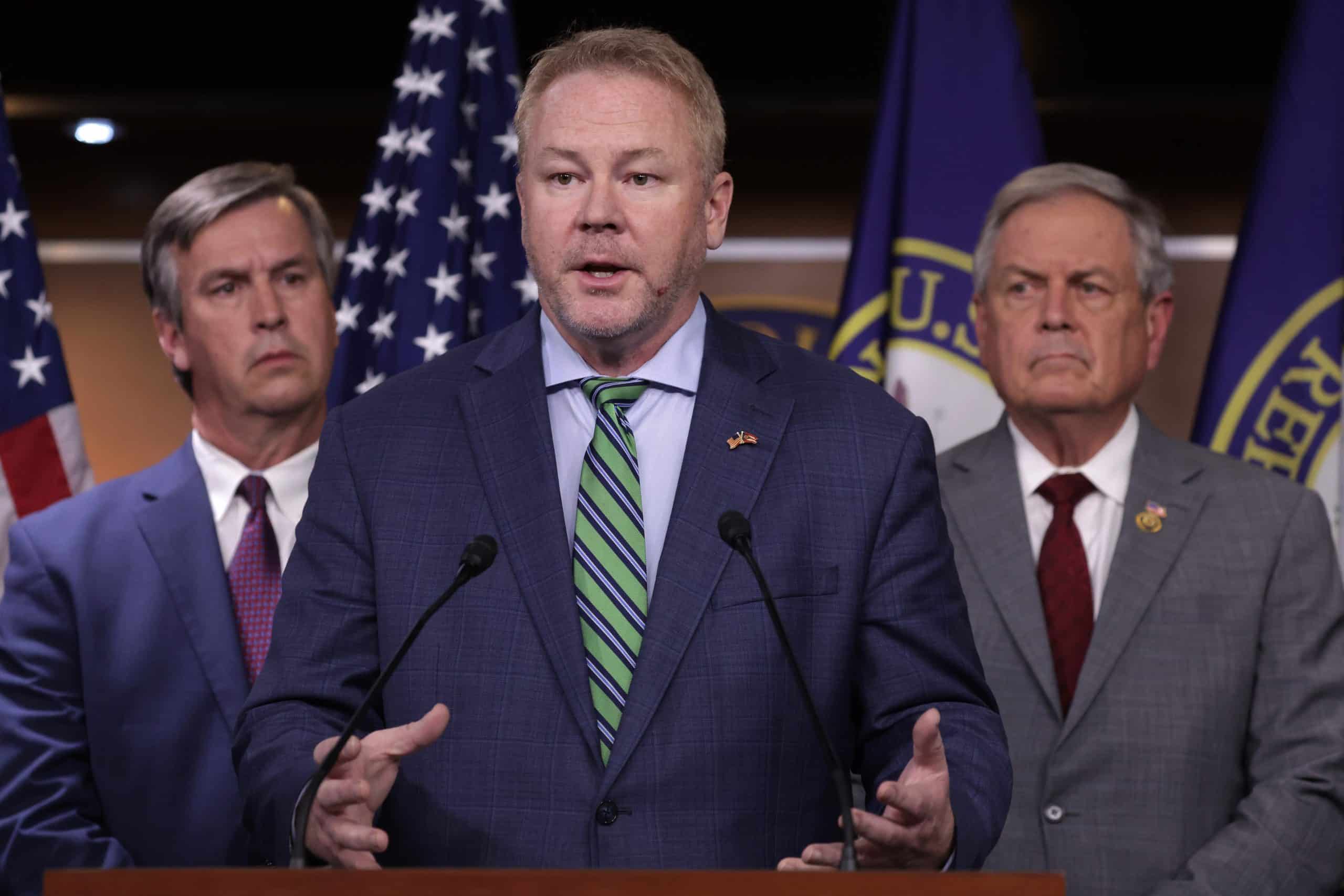
Ohio 8th Congressional District
Assumed office: 2016
Bipartisan ranking: 314th
Warren Davidson was first elected to Congress in June 2016 to replace John Boehner. Another member of the Freedom Caucus, Davidson has made several public statements against supporting Ukraine. He voted against a May 2022 bill and explained his reasoning in a press release:
The United States has generously provided significant humanitarian aid and military supplies totaling over $14 billion—far more than any other country. With this bill, the U.S. would be spending five times more than the rest of the world combined to assist Ukraine. While I support the people of Ukraine and their right to self-defense and self-determination, this is not our war to fight.
Dan Bishop
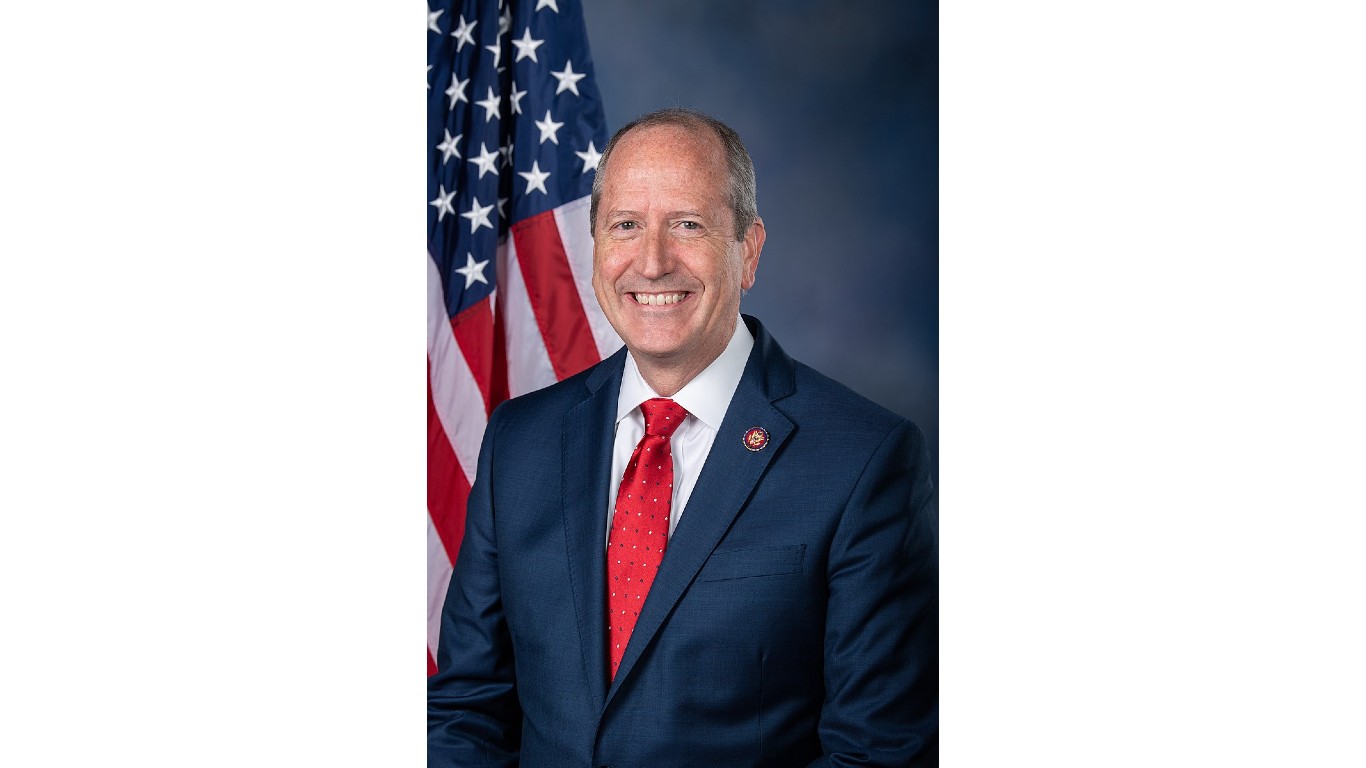
North Carolina 8th Congressional District
Assumed office: 2019
Bipartisan ranking: 421st
Dan Bishop is another Freedom Caucus member highly critical of the money sent to Ukraine. Alongside side now Vice-Presidential nominee JD Vance, he spoke out against the lack of oversight on the funds released:
Congress has shelled out more than $100 billion to support Ukraine since last February, yet we have zero insight into exactly what this money is being spent on. The American people deserve to know exactly where this money is going.
Bishop won’t be around to oppose Ukrainian aid after 2025 as he is running to become North Carolina’s next Attorney General. The GOP hasn’t held the post since 1975.
Andy Biggs
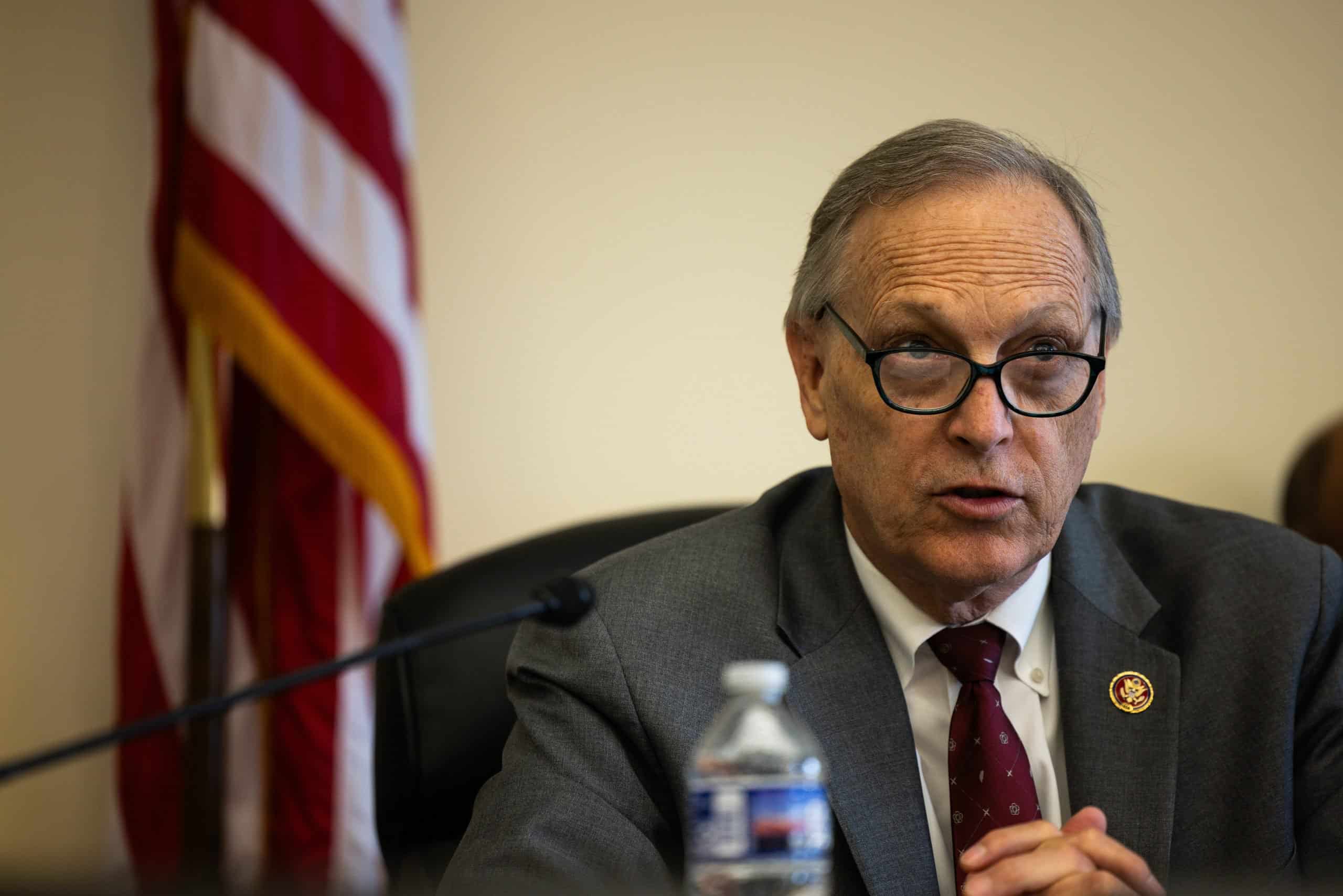
Arizona 5th Congressional District
Assumed office: 2017
Bipartisan ranking: 389th
The Freedom Caucus Chair from 2019-22, Biggs has represented Arizona’s 5th Congressional District since 2017. He is one of the most outspoken critics of the United States’ support for Ukraine. On a television appearance, he decried the lack of accomplishments by the Republican-controlled House which made campaigning difficult:
How do you campaign on the trust of the American people? You failed and continue to fund this goofy Ukraine, this outrageous Ukraine debacle that’s going on.
Paul Gosar
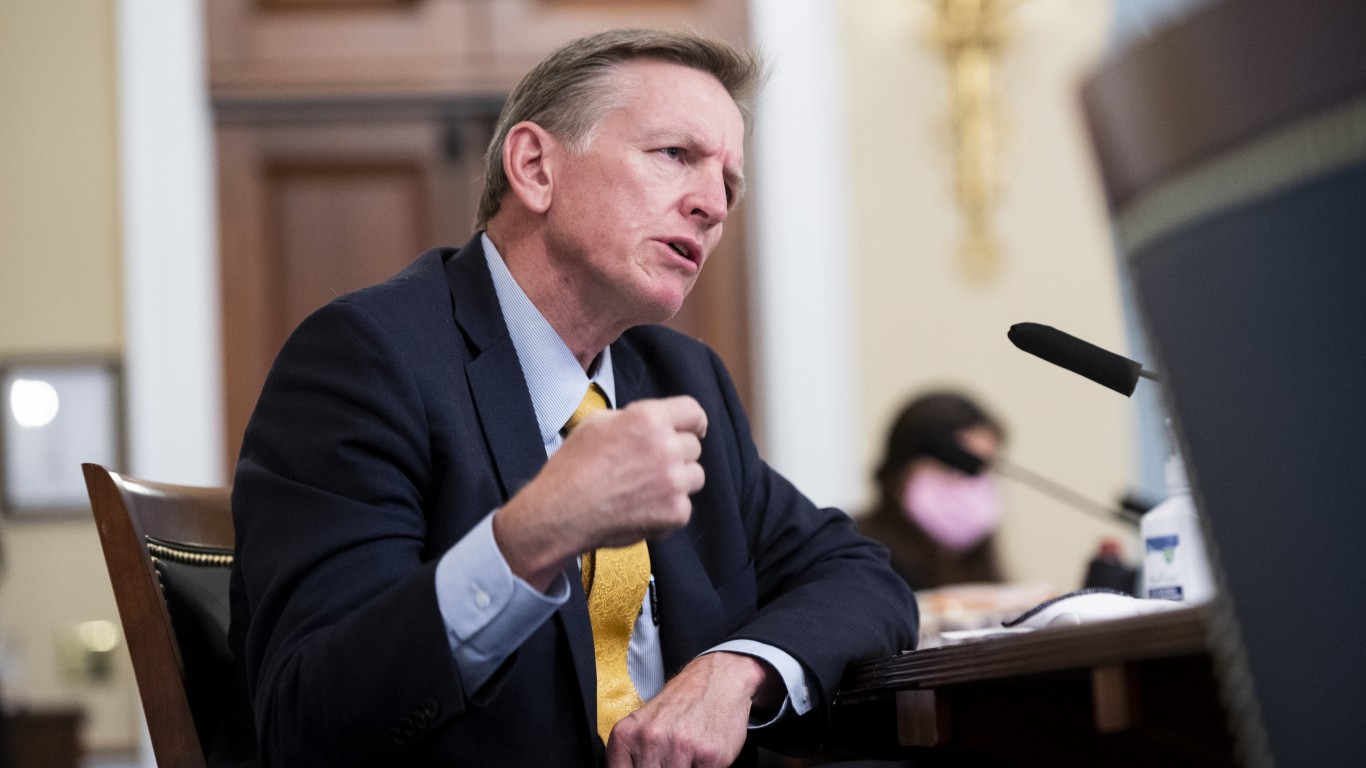
Arizona 9th Congressional District
Assumed office: 2011
Bipartisan ranking: 424th
One of the least bipartisan members of the House, Paul Gosar has represented Arizona’s 1st, 4th, and 9th districts. Though he has won each race comfortably, he apparently didn’t have the votes of several members of his own family who endorsed his opponent. He last ran unopposed in 2022.
Gosar has opposed support for Ukraine since the conflict’s beginning. When a 2023 bill to fund Israel’s war in Gaza was coupled with more funding for Ukraine, Gosar still refused to support it:
It is a mistake to couple Israel funding with Ukraine funding. I will vote for necessary funding to assist Israel in its time of need but if it is combined with billions more for Ukraine, I will vote no. I have voted against every dime spent supporting the proxy war in Ukraine and I will not start now just because it is wrapped in an Israeli flag.
Conclusion

Republican skepticism over support for Ukraine is by no means universal. However, the most virulent critics are all current or former members of the far-right Freedom Caucus. With such a narrow majority in the House, the group wields enormous influence over the bills that actually reach the floor.
The lack of legislation passed by the 118th Congress may well spell the end of the Republican majority in the House in 2024. Equally, if Trump wins, that faction will be emboldened and make any further aid to Ukraine all but impossible.
Get Ready To Retire (Sponsored)
Start by taking a quick retirement quiz from SmartAsset that will match you with up to 3 financial advisors that serve your area and beyond in 5 minutes, or less.
Each advisor has been vetted by SmartAsset and is held to a fiduciary standard to act in your best interests.
Here’s how it works:
1. Answer SmartAsset advisor match quiz
2. Review your pre-screened matches at your leisure. Check out the advisors’ profiles.
3. Speak with advisors at no cost to you. Have an introductory call on the phone or introduction in person and choose whom to work with in the future
Thank you for reading! Have some feedback for us?
Contact the 24/7 Wall St. editorial team.




